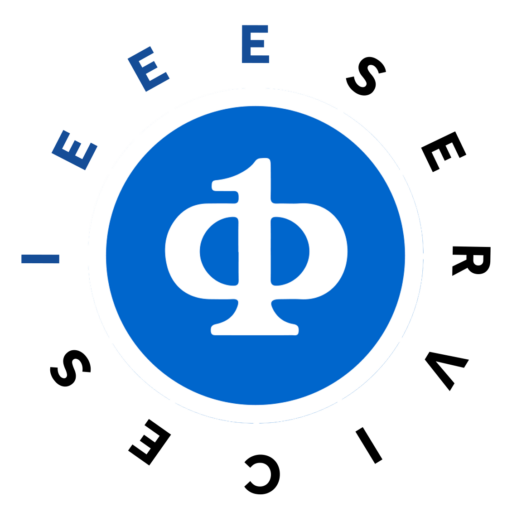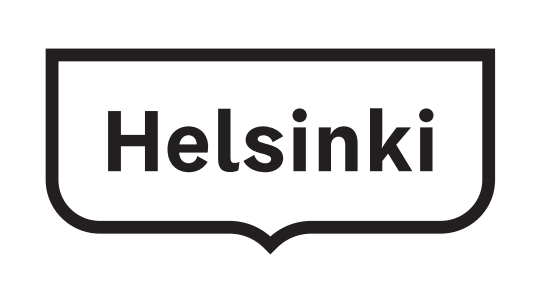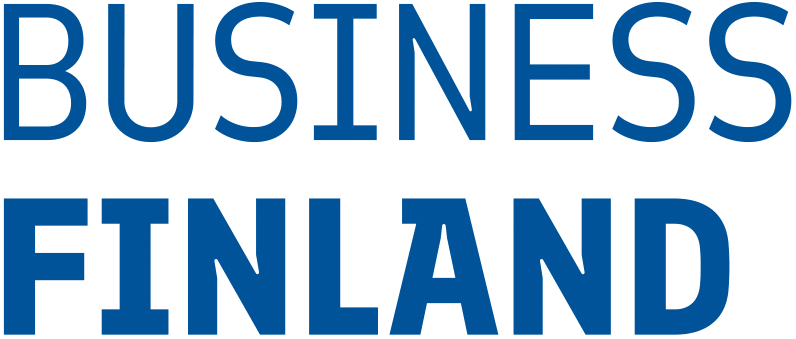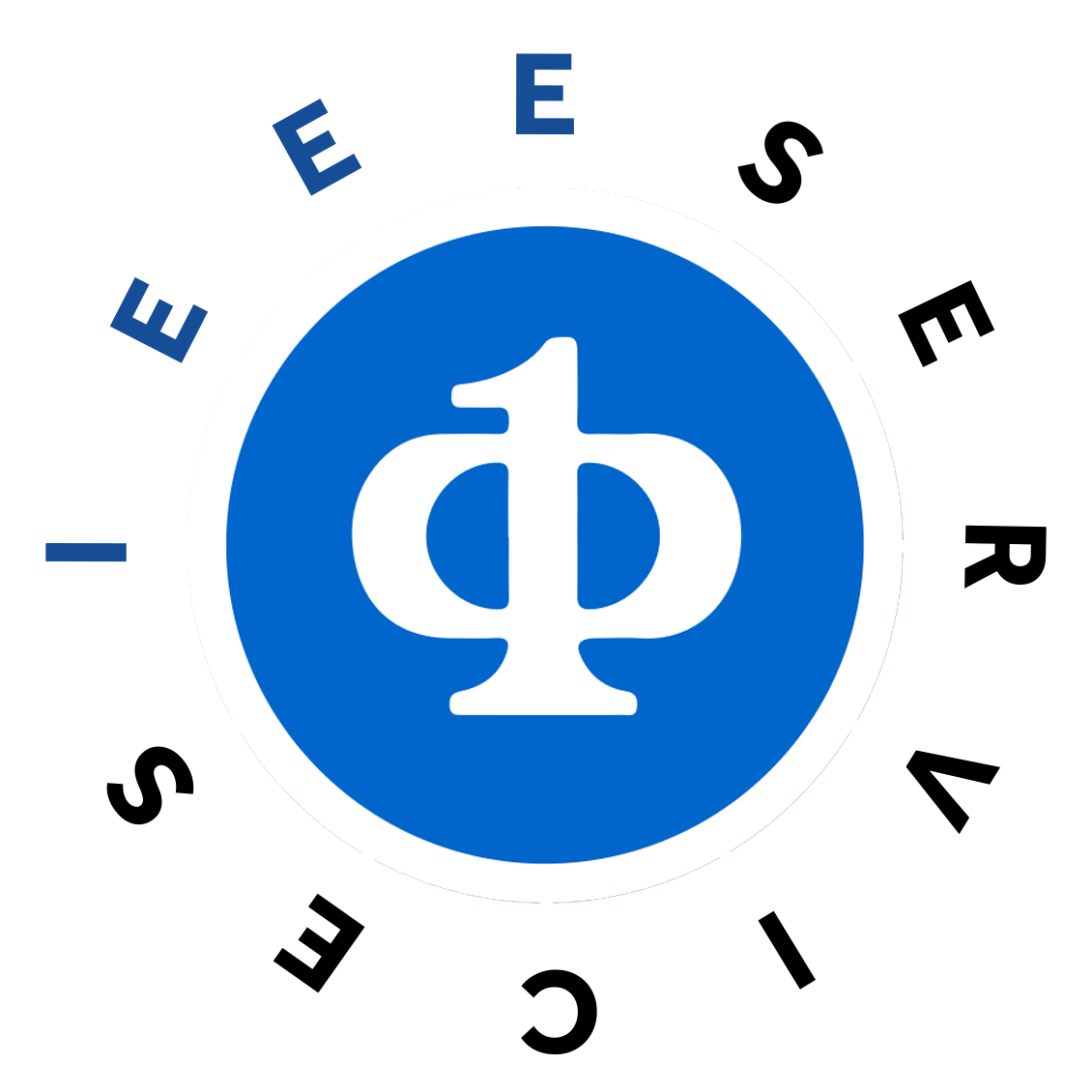Part of the 2025 IEEE World Congress on SERVICES
July 7-12
Helsinki, Finland
Symposium Organizers
Symposium Chairs
- Xiaofei Xu, Harbin Institute of Technology
- Carl K. Chang, Iowa State University
Executive Committee
- Rong N Chang, IBM Research, Yorktown
- Schahram Dustdar, Technical University of Vienna
- Sumi Helal, University of Florida
- John Impagliazzo, Hofstra University
- Weiping Li, Peking University
- Nancy Mead, Carnegie Mellon University
- Michael Sheng, Macquarie University
- Sasu Tarkoma, University of Helsinki
Program Chairs
- Stephan Reiff-Marganiec, University of Derby
- Zhiying Tu, Harbin Institute of Technology, Weihai
2025 IEEE Symposium on Services and Software Engineering Education
SSeEdu: IEEE Symposium on Software Services Engineering Education
Session 1
8:30 – 9:40
Room: F3005
Session Chair: Stephan Reiff Marganiec, University of Derby
Opening: Carl K. Chang, Iowa State University
 Keynote: AI Empowered Software Service Engineering Education for Students’ Ability Promotion
Keynote: AI Empowered Software Service Engineering Education for Students’ Ability Promotion
Xiaofei Xu, Harbin Institute of Technology
Prof. Xiaofei XU, the fellow of China Computer Federation (CCF), is the former vice president of Harbin Institute of Technology (HIT), current full professor in the Faculty of Computing at HIT. He is also the vice director of China MoE (Ministry of Education) University Teaching Steering
Committee on Software Engineering, vice director of MoE University Teaching Steering Committee on Digital Education and Innovation, director of the Execution Committee of the Union of the Associations on MOOCs in Chinese Universities, executive vice chairman of the Association of Chinese University MOOCs on Computer Education. He has received the IEEE TCSVC Outstanding Leadership Award, CCF Outstanding Education Award, CCF 60-Years Outstanding Contribution Award, CCF Life-Time Academic Contribution Award on Service Computing. He has gotten three National Teaching Awards of China, two first-class prizes and one second-class prize, and more than ten provincial awards on teaching or research achievements.
SSeEdu: IEEE Symposium on Software Services Engineering Education
Session 2
11:10 – 12:10
Room: F3005
Session Chair: Zhiying Tu, HIT
 Keynote: IT Bench – From Hype to Impact: Benchmarking AI Where It Matters
Keynote: IT Bench – From Hype to Impact: Benchmarking AI Where It Matters
Ruchi Mahindru, IT Automation Research, IBM Master Inventor IBM Research
Ruchi Mahindru is a Distinguished Engineer at IBM Research, leading technical strategy for AI-based IT Automation and serving as a thought leader in AI’s impact on IT operations, FinOps, and enterprise innovation. Over the past decade, she has driven IT solutions from on-premises to microservices-based architectures in hybrid and multi-cloud environments, now leading integration of generative AI agents into production IT pipelines with focus on responsible AI practices.
As an IBM Master Inventor since 2016, Ruchi holds over 120 patents, has authored 45 technical papers with 2,000+ citations, and received multiple prestigious awards including Outstanding Technical Contributor at the Women of Color STEM Conference (2022). She earned her M.S. in Computer Science from CUNY and is deeply committed to mentoring and empowering others.
SSeEdu: IEEE Symposium on Software Services Engineering Education
Session 3
13:40 – 14:50
Room: F3005
Session Chair: Zhiying Tu, HIT
Panel: AI Empowered Education for Services and Software Engineering
Panelists: Rong Chang, IBM Research
Michael Sheng, Macquarie University
Liu Xuanzhe, Peking Universitiy
Stephan Reiff-Marganiec, University of Derby
Ulla Hemminki-Reijonen, University of Helsinki
SSeEdu: IEEE Symposium on Software Services Engineering Education
Session 4 – Invited Talks
15L10 – 16:20
Room: F3005
Session Chair: Stephan Reiff-Marganiec, University of Derby
Challenges and Innovative Practices in Software Engineering and Service Computing Education
Wenlong Meng, Xiaodong Zhang, Hua Zhang, Zhiying Tu and Dianhui Chu,
Towards a DIY Robotic Tail Toolkit for Future Service Robot and Computing Education
Marco Cano, Carolina Velasco, Patrick Hung, An Tseng and Kai Xuan Koh
How LLMs Aid in domain Modeling: Opportunities and Challenges
Haoran Shi, Shijun Liu and Li Pan
SSeEdu: IEEE Symposium on Software Services Engineering Education
Session 5
8:30 – 9:30
Room: F3005
Session Chair: Stephan Reiff Marganiec, University of Derby
 Keynote: SWEBOK Guide and Software Services Engineering Education
Keynote: SWEBOK Guide and Software Services Engineering Education
Hironori Washizaki, 2025 IEEE Computer Society President; Waseda University
Hironori Washizaki is a Professor and the Associate Dean of the Research Promotion Division at Waseda University in Tokyo and a Visiting Professor at the National Institute of Informatics. He also works in the industry as Outside Director of eXmotion. He is advisor of University of Human Enviroments. Hironori’s research interests include systems and software engineering. Hironori currently serves as President-Elect 2024 (and President 2025) of the IEEE CS to lead its activities and future directions. He has been on CS BoG since 2021. He has led professional and educational activities, including the evolution of the Guide to the Software Engineering Body of Knowledge (SWEBOK) and organizing educational courses and certifications at the CS Professional and Educational Activities Board (PEAB). He was awarded Golden Core Member, Distinguished Contributor, and Spirit of the Computer Society Award from CS. He serves as Associate Editor of IEEE Transactions on Emerging Topics in Computing (TETC), Steering Committee Member of the IEEE Conference on Software Engineering Education and Training (CSEE&T), and Advisory Committee Member of the IEEE CS flagship conference COMPSAC. He is a Senior Member of IEEE and a Professional Member of IEEE-Eta Kappa Nu. He has been the general chair and program chair of multiple IEEE conferences, including ICST, CSEE&T, and SIoT/SISA of COMPSAC. Additionally, he has been the Chair of the CS Japan Chapter.
SSeEdu: IEEE Symposium on Software Services Engineering Education
Session 6
11:10 – 12:10
Room: F3005
Session Chair: Zhiying Tu, HIT
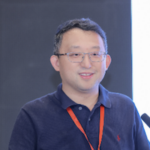 Keynote: “Education, Science and Technology, Talent, Industry” 4 in 1 – Training of Top-Notch Innovative Talents in Software Service Engineering
Keynote: “Education, Science and Technology, Talent, Industry” 4 in 1 – Training of Top-Notch Innovative Talents in Software Service Engineering
Jianwei Yin, Zhejiang University
Yin Jianwei was appointed as a distinguished professor at Zhejiang University in 2018. The current Executive Vice Dean of the School of Software at Zhejiang University, Vice Dean of the School of Computer Science and Technology at Zhejiang University, Executive Vice Dean of the Binjiang Research Institute at Zhejiang University, Director of the Electronic Service Engineering Technology Center for Modern Service Industry in Zhejiang Province, and Director of the High Resolution Earth Observation Engineering Center at Zhejiang University.
Recipient of the National Outstanding Youth Fund Project. He is deputy editor of IEEE TSC (AE, 2015-present), served as chairman of the Service Computing Special Committee of the Chinese Computer Society (2020-2023), director of the Chinese Computer Society (2020-2023), vice chairman of the Expert Committee of the Service Manufacturing Alliance of the Ministry of Industry and Information Technology (2017-present). He published over a hundred papers in international journals and conferences, including TC, TSE, TKDE, TPDS, TSC, TII, TCBY, CHI, ICDE, IJCAI, AAAI, ICDCS, CIKM, ICSOC, ICWS, SRDS, ICSME. He won the Best Paper award at the Service Computing Top conferences ICSOC2017, ColllabeteCOM2020, and IEEE SMDS2020, and guided students to win the Best Student Paper awards at ICSS2020, ICWS2019, CollaborateCOM2019, and IEEE SCC2012.
SSeEdu: IEEE Symposium on Software Services Engineering Education
Session 7 – Invited Talks
13:40 – 15:00
Room: F3005
Session Chair: Tu Zhiying, HIT
Teaching Practice and Innovation in the Professional Master’s Degree Program in Electronic Information at Peking University in the Era of Artificial Intelligence
Tong Mo, Weiping Li and Liwen Zhang
A Practical Teaching Model of Software Engineering Courses for Artificial Intelligence Literacy Cultivation in Pre-service Teachers
Junna Zhang, Yulin Sun, Li Duan, Hui Liu, Chunhong Liu, Aili Zhang and Peiyan Yuan
Fostering Active Learning: A Study on Autonomous Q&A Software in Undergraduate Education
Dan Li, Zigui Jiang, Yuxin Su and Zibin Zheng
Theme: AI Empowered Education for Services and Software Engineering
Call for Papers
In recent years, with the rapid development of the Large Language Models (LLMs), artificial intelligence has made a huge impact on industry, governments and education. Education of service and software engineers has been empowered by generative artificial intelligence while acknowledging a demand for a new and wider skillset. The Symposium on Services and Software Engineering Education (SSEedu) has evolved quickly interrelating computer science,software engineering, management science, social science, serviceology, service science and service engineering. SSEedu is gaining a considerable momentum in terms of the ongoing accreditation activities in both academia and industry. Advancements in the AI-empowered information technology and tools are expected to shape SSEedu further in its approaches, deliverables, and practices.
In 2024, the first IEEE Symposium on Services and Software Engineering Education (2024 IEEE SSEedu) was successfully held in Shenzhen, with the theme on services and software engineering in the digital era. This year, the 2025 IEEE SSEedu symposium (2025 IEEE SSEedu), organized alongside the IEEE Congress on Services SSE Conference focuses on services and software engineering education in the intelligent era, addressing related topics and establishing a platform for educators, researchers, higher-education administrators, and industry/government stakeholders to exchange ideas, knowledge, proposals, research findings, teaching practices, and share experiences of collaboration in Service and Software Engineering formal and professional (continuing) education.
The 2025 IEEE SSEedu will be held for two days in July in Helsinki with invited speeches, panels, and paper presentations. SSEDu will accept high quality papers aligned with the topics below, ensuring a balance of views from various geographical regions and also from academia and industry. The accepted papers will be published in Proceedings of the 2024 IEEE World Congress on Services.
Topics of Interest
Topics of interest include, but are not restricted to:
1. AI-Enhanced Educational Foundations
- AI-Driven Curriculum Design and Development for Services and Software Engineering
- Integration of Large Language Models in Software Engineering Education
- AI-Powered Assessment and Evaluation Methods in Services Education
- Adaptive Learning Systems for Software Engineering Education
2. Educational Technologies and Platforms
- AI-Enhanced Learning Management Systems for Services and Software Engineering
- Intelligent Tutoring Systems and Virtual Teaching Assistants
- AI-Powered Code Review and Programming Education Tools
- Extended Reality (XR) and AI Solutions in Software Engineering Education
3. Teaching and Learning Methodologies
- AI-Assisted Project-Based Learning in Software Engineering
- Intelligent Personalized Learning Paths for Services Education
- AI-Enhanced Collaborative Learning Environments
- Real-time AI Feedback Systems in Programming Education
4. Industry Integration and Professional Development
- AI-Powered Industry-Academia Collaboration Platforms
- Intelligent Internship and Practicum Management Systems
- AI-Enhanced Professional Certification Programs
- Industry-Relevant AI Tools in Software Engineering Education
5. Educational Content and Resources
- AI-Generated Educational Content for Services and Software Engineering
- Intelligent Content Curation and Recommendation Systems
- AI-Powered Documentation and Technical Writing Tools
- Automated Resource Generation for Programming Exercises
6. Assessment and Quality Assurance
- AI-Based Student Performance Analytics
- Intelligent Plagiarism Detection Systems
- Automated Quality Assessment of Software Projects
- AI-Driven Educational Program Evaluation
7. Future Directions
- Emerging AI Technologies in Services and Software Engineering Education
- Ethics and Responsible AI in Software Engineering Education
- AI-Driven Educational Policy and Governance
- Next-Generation AI Tools for Software Engineering Education
- Emerging Barriers and Risks for AI Technologies in SSEEdu
